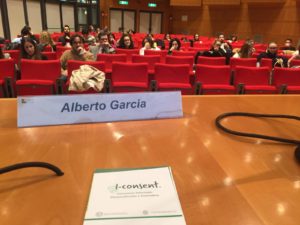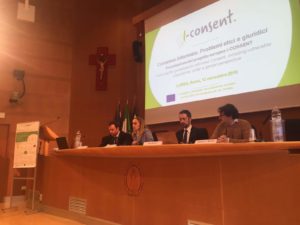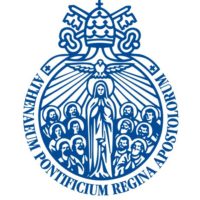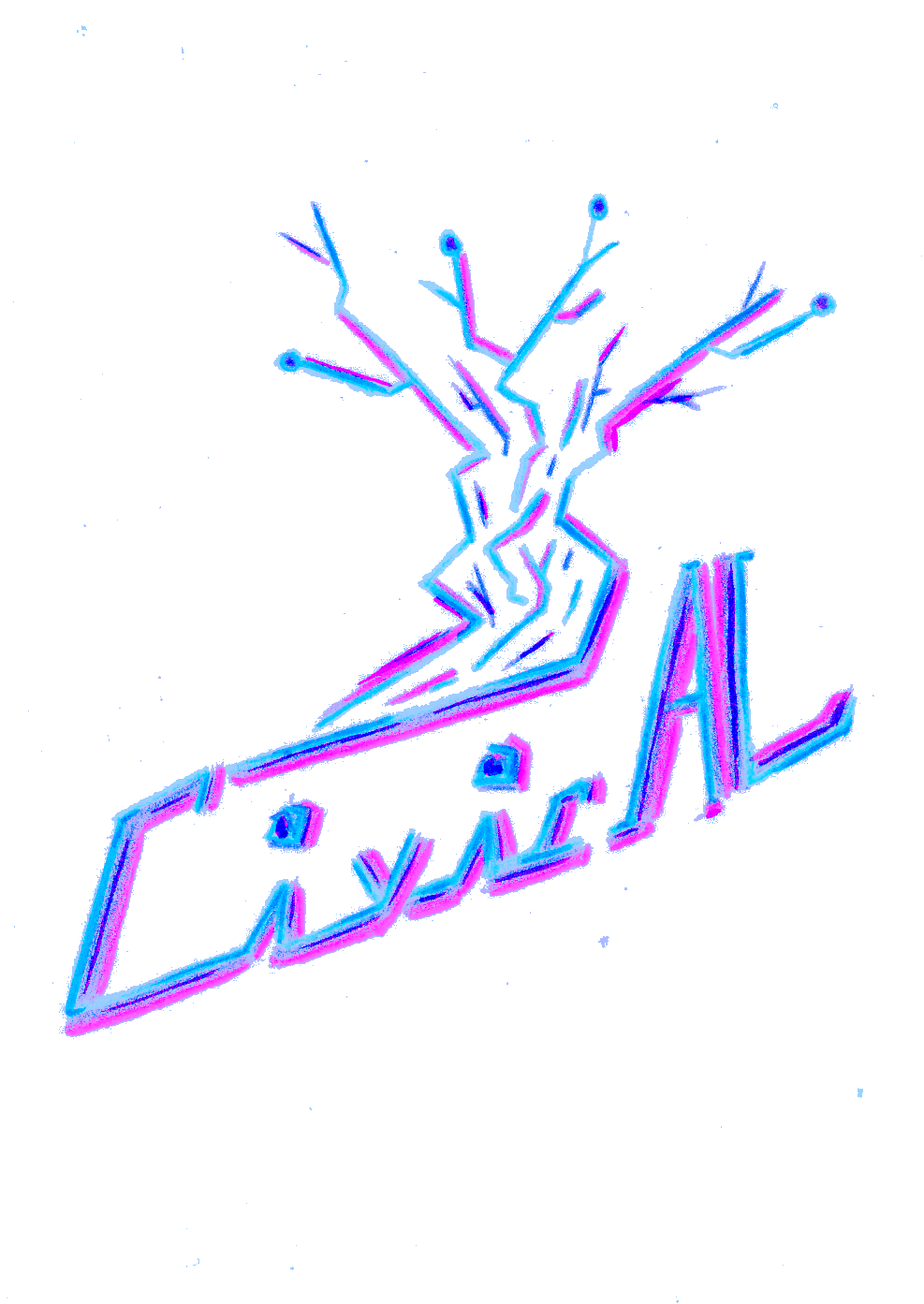By Santiago Marcet –
 On October 10th and November 12nd, Prof. Alberto Garcia, Director of UNESCO Chair in Bioethics and Human Rights, attended LUMSA’s venues in Rome and Palermo to give a presentation on the details of the European project of i-CONSENT, as well as to explain the intricacies that go along the practical and theoretical notion of informed consent (IC) in clinical research.
On October 10th and November 12nd, Prof. Alberto Garcia, Director of UNESCO Chair in Bioethics and Human Rights, attended LUMSA’s venues in Rome and Palermo to give a presentation on the details of the European project of i-CONSENT, as well as to explain the intricacies that go along the practical and theoretical notion of informed consent (IC) in clinical research.
On a theoretical level, Prof. Garcia highlighted the importance of taking into consideration the factors of gender, age and cultural and religious background if one’s approach to constitute successful patterns of informed consent is to be effective. Thinking about these vulnerability factors will help consolidate i-CONSENT as a person-centered project, as it considers how the above mentioned factors change the way in which patients understand information and communicate with others.
 He also approached the tensions that arise from a conceptualization of IC that depends on a notion of individual autonomy that is not shared by all cultures and religions: while western culture tends to give importance to the individual and his or her rights, eastern traditions use to put more weight on community and the duties that derive from it. Thinking about how each major religious tradition (namely Buddhism, Confucianism, Christianity, Judaism, Hinduism and Islam) views IC in accordance to their doctrine and traditions will help to outline defined goals for the effectiveness of i-CONSENT.
He also approached the tensions that arise from a conceptualization of IC that depends on a notion of individual autonomy that is not shared by all cultures and religions: while western culture tends to give importance to the individual and his or her rights, eastern traditions use to put more weight on community and the duties that derive from it. Thinking about how each major religious tradition (namely Buddhism, Confucianism, Christianity, Judaism, Hinduism and Islam) views IC in accordance to their doctrine and traditions will help to outline defined goals for the effectiveness of i-CONSENT.
Prof. Garcia went on to talk about the practical expected outcomes of the project: i-CONSENT intends to be beneficial both for patients and researchers, in a way that will benefit society as a whole. In its person-centered approach it will develop different tests and will aim to involve different physicians in accordance to the profile of the patient, effectively incorporating its principles with their presence on regulatory bodies and ethics groups. The overall goal, according to Prof. Garcia, is to increase the standards of clinical research by making IC form and the whole process more comprehensive and mindful of the patient’s particularities.
You can read more about the i-CONSENT project as it is approached by the UNESCO Chair in Bioethics and Human Rights here: http://www.unescobiochair.org/2017/06/02/new-eu-project-works-on-improving-guidelines-for-informed-consent-including-vulnerable-populations-under-a-gender-perspective/
Visit i-CONSENT’s official website: https://i-consentproject.eu/


 He also approached the tensions that arise from a conceptualization of IC that depends on a notion of individual autonomy that is not shared by all cultures and religions: while western culture tends to give importance to the individual and his or her rights, eastern traditions use to put more weight on community and the duties that derive from it. Thinking about how each major religious tradition (namely Buddhism, Confucianism, Christianity, Judaism, Hinduism and Islam) views IC in accordance to their doctrine and traditions will help to outline defined goals for the effectiveness of i-CONSENT.
He also approached the tensions that arise from a conceptualization of IC that depends on a notion of individual autonomy that is not shared by all cultures and religions: while western culture tends to give importance to the individual and his or her rights, eastern traditions use to put more weight on community and the duties that derive from it. Thinking about how each major religious tradition (namely Buddhism, Confucianism, Christianity, Judaism, Hinduism and Islam) views IC in accordance to their doctrine and traditions will help to outline defined goals for the effectiveness of i-CONSENT.



